The Emigrant's Lost Son; or, Life Alone in the Forest Read online
Page 2
CHAPTER I.
CAUSE OF LEAVING ENGLAND AND ARRIVAL AT THE FOREST.
"On the bosom, lone and still, Of nature east, I early sought to stroll Through wood and wild, o'er forest, rook, and hill, Companionless; without a wish or goal, Save to discover every shape and voice Of living thing that there did fearlessly rejoice."
As it is my object to lay before my readers only that portion of mylife which was passed in the wilds of nature, it will be unnecessaryfor me to detain them with a lengthened account of the genealogy of myfamily.
My father occupied a small farm in the west of England, situate near apeaceful village, the curate of which superintended the education ofmyself and some fourteen or fifteen of the neighbouring youths. I wasbetween ten and eleven years of age, when a stranger arrived at ourhouse, informing the family that, in consequence of the death of myfather's elder brother, he, together with two surviving brothers, hadjointly become the proprietors of a tract of land situate in thesouth-western part of Guiana.
It subsequently appeared that my deceased uncle had speculated in thepurchase of the land in question, intending to have invited his threebrothers to join him in the cultivation of it. Death frustrated theseintentions, the land became the joint property of the survivors, andafter using every effort to dispose of it in this country, beingunsuccessful in meeting with a purchaser, the three brothers came tothe resolution of going out, together with their families, and sharingtheir newly-acquired property.
[Sidenote: First leaving home]
When the order was finally given to prepare for the voyage, it operatedon my mind almost as a penal sentence; expatriation presented itself tomy imagination as the climax of all evils. It now suddenly occurred tome that I had a thousand local attachments, all of which were to bebroken asunder; my imagination passing in review a painful parting withmy schoolfellows and other intimates; when all the early and recentscenes of my short career poured in on the memory, and seemed to bindme to the immediate locality of my existence and its environs. I thendiscovered that I had a real attachment for my teacher, the good pastorof a small flock; indeed, every person known to me, I thought had, insome way, been peculiarly kind, and a torrent of gratitude overflowedthe heart; while the idea of quitting the scenes of my childhood, andall I then knew of the world, presented itself as the annihilation ofevery object from which I had hitherto derived pleasure.
The young heart is generally thought to bound with joyousness at theprospect of a change of scene, but it was otherwise with me: the world,in the map of my microcosm, excepting the circumscribed view I hadtaken of it, was an entire desert, where there was no one to love or beloved. In this state of mind the agitation of my feelings nearlychoked me, till I sought the favourite arm of a tree in the orchard,where, unobserved, I found relief in a flood of tears. Stilloppressed, as the evening advanced I crept to bed without speaking toany one,--not even to my sister, whose buoyant joyfulness at the timeexcited my surprise. I spent the night in a state of half-dreamystupor, being neither asleep nor awake; whilst the imagination wasengaged in endeavouring to contrast the retrospection of the past withthe prospects of the future. Every act of kindness which had beenbestowed upon me, stood out in strong relief in my memory, as a vistaof other days, and into which I had not previously been permitted tolook; whilst the little village-world was presented to my view as abright speck in creation--an oasis in a desert, all around which was amass of confusion and darkness.
The placid countenance of the curate, monarch of his locality, with allthe scholastic paraphernalia, were brought vividly under review; theform on which I was wont to sit, with every cut I had made on thewell-marked desk with my knife--an instrument with which boys earlyprove themselves tool-loving animals--were all objects of endearment tome. My fancy then roamed into the little churchyard, where I took aview of each mouldering heap, with the tombstones at the head and foot,every epitaph on which I had committed to memory. I then stood underthe brave old Hercules, as we designated an oak tree where four of ushad met most days to proceed together to school. Here I distinctlynoted--such is the power of memory when the feelings are excited--eachabrupt rising of its rugged roots, and marked the boundary of itsshadows at different hours of the day, as described by its broad,out-spreading limbs on the greensward.
I wandered to the copse, entered by a well-defined gap at the angularpoint; noted each spot where I had taken eggs or young ones from birdsthat had been incautious enough to attract my attention; paused to takea last look at the hazel from which I had gathered the largest cob-nut;lingering at every step, and sighing as I passed each object ofremembrance. The following morning, sleepless and weary, I arose withthe sun, and collected all my little stock of property--bows andarrows, fishing-tackle, bats, balls, and other juvenile valuables;these I labelled as presents to my intimates. My heart then knew howhighly it was susceptible of friendship; it had yet to learn howreadily, after the lapse of a few years, such attachments areforgotten. The desire in after life to meet with an old schoolfellowis seldom prompted by a higher motive than a curiosity to learn hissuccess in the world.
It is probable that my parents had associations and connexions fromwhich they were about to separate, and deeper feelings of regret tostruggle with, than myself, when parting from attached friends. It isfresh in my memory that our calls were very numerous, and that manyreasons were adduced to dissuade my father from emigration. The Sundaypreviously to our departure, the curate, from the pulpit, mentioned theintention of the families to emigrate, and offered up a prayer for therealization of their prospects of success. I shall ever remember theday I left the kind preceptor of my youth and the companions of myboyish days. My father had sent a chaise to fetch me and my valuablestock of personal property a day before our final departure. I think Isee now the mild old curate shaking my hand and giving me his blessingand friendly advice, while around the gate of the old house wereassembled my school companions, to take a last sight of me before Itook my leave of home and of them.
[Sidenote: Voyage to Demerara]
Our journey to the coast, and voyage to Demerara, a _ci-devant_ Dutchsettlement, was unattended by any circumstance of peculiar interest. Itherefore take up the narrative from the period of our landing. Myfather was purely a business man, never permitting pleasure orcuriosity to divert him from his pursuits. Immediately, therefore, onour arrival at Demerara, preparations were made for us to proceed ontowards our destination, regarding the situation and name of which Ihad not up to that time taken any interest, I had, however, heard thatwe had to travel some hundreds of miles over a country where there wereno roads, as in England. I also remember a long discussion between myfather and my two uncles, whether we should travel with a waggon orpurchase horses and mules to carry our luggage and relieve the femaleswhen fatigued. As our course was through an extensive wooded country,where carriages could not conveniently pass, the latter mode oftravelling was ultimately adopted. Our party consisted of ninepersons, namely, my father, mother, sister, and self; one uncle, with agrown-up son (his father being a widower); the other uncle, his wife,and son (a youth three years older than myself).
My father provided himself with a horse and mule; the latter to carryour personal necessaries, and the former to alternately relieve mymother, and my sister, who was a healthy girl of sixteen years of age,when either was fatigued with walking. One other horse was purchasedfor the use of my aunt and the party in general. We were provided withtwo painted cloths, to be used as a covering when we should halt forrest, and no better accommodation could be obtained. I remember myfather making a pen-and-ink sketch of the route, marking down, with theassistance of a traveller, the stages we were daily to accomplish.
[Sidenote: Crossing the savanna]
Thus prepared and equipped, as all of us were in excellent health andspirits, we commenced our journey over the plantations of the settlers,proceeding onwards till we reached the extended savannas--open plains.Here the scene was alto
gether so new and striking, that it was withdifficulty I could be prevented from running after every living thingthat came under my view. At one moment I was lost in wonder at themultitudes of creeping creatures which, at every step, crossed my path,while the birds of the air in numbers, variety, and plumage, fixed mewith astonishment. My excitement was so great that I actually screamedwith delight; at another moment I ran from object to object with sucheagerness, that, my mother became alarmed for my intellect, affirmingthat no one in their senses could sustain so much unnatural excitement.
On the third day of our journey I began to be seriously fatigued, andmy father placed me across the back of our mule. This, however, was ameasure against which the animal at once entered his protest, byrefusing to move forward the moment I threw my legs across him; hisconduct seemed to imply that at starting a contract had been made withhim to carry the baggage, and he would not consent to its infringement;and it would appear that the mere attempt to overburden him soured histemper for the whole journey; for a more obstinate or perverse mule wasnever crossed by man or boy. At length we entered into a compromise,by removing a portion of his baggage to one of our horses; and he thenallowed me to ride in peace, as he proceeded sulkily along. He was,however, faithful to his second bargain, never evincing any morediscontent. This third day of our journey was the longest we had yethad, and we were all of us anxiously looking for some habitationtowards its close, where we might rest for the night. The sun soonpromised to hide his golden beams behind the hills which formed thehorizon, and we all showed signs of fatigue. We were much delightedwhen my father informed us that we were approaching the house of asettler, where he hoped to obtain shelter for the night. We proceededup a steep declivity to the house in question, forming rather apicturesque party. My sister was first, mounted on a heavy dappledgrey horse, with my father and mother by her side. I followed on mymule; while the remainder of the party were some fifty yards in therear. As we halted before the house, my father informed us that, inall probability, this would be the last time we should findaccommodation, even in the outhouse of a settler; and that in future weshould have to resort to our painted cloths for shelter during thenight.
We all retired to rest, therefore, with a determination to lay in agood stock of sleep. Notwithstanding this determination, and thefatigue I had endured in the excessive heat of the day, the novelty ofmy new existence resisted every effort to close my eyes for rest; and Iarose in the morning but very little refreshed.
[Sidenote: The blessing of rain]
During the first five days of our journey the intense heat of the sun,to which we were unseasoned, annoyed us all exceedingly; while thescorching earth so much blistered my feet that, on the sixth morning, Ilingered behind, and divested myself of both stockings and shoes,hanging them upon the mule's baggage. In the school of experiencenature is head master. The relief was almost instantaneous; and,during that day, I surprised my fellow-travellers with my pedestrianperformances, which induced them all to follow my example. Early thesame afternoon, the rain began to fall in torrents, or rather insheets, previously to which, during our journey over the plains, theextreme dryness of the weather had occasioned one of those vegetableconflagrations so common in hot countries. Hitherto the scene had beenarid, the land being hard to the feet, and painfully dry to the eye.The following morning, we had an opportunity of observing with whatsurprising rapidity nature, in these climates, clothes the earth. Ourcourse was now on a wide-expanded green carpet, every where soft andcooling to the feet, and deliciously refreshing to the sight. Birds ofevery hue, gems of the air, glittered in our pathway; a vast number ofthe cormorant species were busy in gobbling up frogs, toads, andsnakes; the eagle and the vulture, too, were soaring over our heads,looking out for the prey these regions afford them in such abundance.Every step we took frightened up flocks of the smaller feathered tribe,and brought to view myriads of other living things, such as slugs,snails, and insects of every variety.
On the tenth day of our journey, we approached a country covered, asfar as the eye could reach, with dense foliage, variegated with everyknown or imaginable hue, the groundwork of which was one wide-spreadingmass of every shade of green. There were browns of all tints, yellow,orange, purple, and brilliant scarlets, so intermingled as to presentone uninterrupted view of nature in glorious beauty, spreading over anundulating mass of waving forest-green, while, in appearance, reachingfrom the high heavens to the earth, into which the lower sweeps seemedto dip, conveying the idea of eternal spring, summer, and autumn,harmoniously blended into one. As we skirted the forest, the charmingvariety of the blossoms, and their shades of colour, presented a stillmore enlivened appearance--the tops of the trees being covered withbloom, some standing erect towards the light of the sun, others bendingdown, with a profusion of fruit and seed.
Yet, even here, in this enchanting scene, was man admonished, andreminded of mortality: as we passed the margin of the wood, here andthere was seen some former giant of the forest, whose head had beenbared by time or the thunder blast, painfully, in the midst of nature'sprodigal luxuriance, intimating that all things have their period ofbirth, maturity, and decay.
[Sidenote: Meeting with natives]
Penetrated with surprise and admiration at the scene, it was some timebefore we discovered that we were approaching a party of natives, who,it was evident, had been watching our movements. When they firstattracted our notice, the sound of what we took for a village bell fellupon the ear; whereupon my father flattered himself that we wereapproaching a civilized settlement; while both my uncles were ofopinion that a signal of alarm was given at our approach, and, inconsequence, prepared for defence. The bell, however, sounded only atintervals of four or five minutes; and as there was no increase ofnumbers in consequence, we at once went forth to meet the natives.They consisted of a party of six, besides an old negro, who seemed tobe the patriarch of his race. To our surprise and delight, he spokeEnglish remarkably well, as did also a young man who appeared to be hisson. Probably, they were runaway slaves. They proved, however, to befriendly disposed; and when we spoke of the bell, and the negro hadexplained the nature of our enquiry, they all broke out into a mostimmoderate fit of laughter. The negro, almost convulsed, said, "Whitebird, ding dong--ding, dong! a great way off; for white man here, whitebird, ding, dong--ding, dong!" The bird that sends forth this peculiarsound is named the campanero, and is snow white; it may be heard atthree miles' distance; and during my sojourn subsequently in the wildsof nature, it was the only sound that daily recalled to my recollectionthe tones of my native village church bell.
As we were all attention to the negro, who was very lively andgarrulous, a flock of birds passed over our heads, emitting sounds thatmight be mistaken for those of a trumpet; when the old man pointed up,and laughingly said--"Red-coats, red-coats!" meaning to ask,ironically, if we took the birds for soldiers? These birds areproperly called Waracaba, and are frequently rendered domestic, whenthey exhibit the attachment of a dog to their master, following him inthe same spirit of fidelity; their spirit, also, appears to exceed thatof the game cock--although unarmed with spurs for defence, they willfly at a dog; and, in a domestic state, seldom fail to browbeat andlord it over the dunghill cocks living in the same yard.
While my father was consulting with the negro regarding our bivouac forthe night, the latter suddenly seized his foot, exclaiming, "_Chegoe_in toe," then forcing him to the ground, and taking from his pocket aknife, proceeded to extract one of those formidable insects, which hadbecome embedded in the skin of the foot. This insect, had it beenallowed to remain, would have, no doubt, produced inflammation, fromits bite, and, in all probability, caused my father lameness for someweeks. The negroes treated us with the greatest possible kindness andrespect; and the old man, who appeared the orator of his party,insisted upon our sharing their hospitality, by partaking of theirevening meal, which we readily accepted, producing, at the same time,our own provisions; and such an interchange of delicacies
took place,that I am sure it would puzzle me now to recollect or enumerate them.I know it was the cause of some considerable share of merriment amongus all. Their food, if I remember rightly, appeared to me to consistmore of vegetables and fruit than ours, and was of a simpler nature. Ifancy if some of our worthy civic authorities had been present aspartakers of this repast, they would have been more surprised at theviands than delighted.
But man is of a ductile nature--a creature of habit, and may almosthabituate himself to anything. In civilized cities, where thousandsare taxing their energies in the pursuit of wealth and position insociety, an artificial state of existence is the consequence; and theprimitive fare of our forefathers is superseded by something of a morestimulating nature. I have seen, in my experience in forest life, howlittle man can subsist upon, and how healthy and strong he may continuein a simple state of existence. Civilization brings with it a host ofimaginary and fictitious wants.
[Sidenote: The repast with the negroes]
We accepted the offer of our newly-made friends to share with themtheir small huts for the night, and they being plentifully providedwith various skins of animals, a more agreeable resting-place couldhardly be desired. The old negro, without being obtrusivelyinquisitive, was anxious to know our object in crossing the country;and my father informed him of our route, and produced the rough charthe had made upon our first starting upon the expedition. A longconsultation was the result, and a doubtful shake of the head was givenby the old man as to the possibility of our accomplishing the task; atthe same time he gave an incredulous look at my mother and sister, who,he seemed to consider, would hardly be able to endure the journey andthe hardships attending it. To say the truth, my mother looked butvery weak, and I remember being struck myself with her appearance. Mysister was of such a buoyant temperament, that her joyous spirit wouldcarry her through almost any temporary difficulties; but still we wereall considerably jaded. And I remember I thought the rude habitationof our entertainers a most delightful place of refuge, compared tobeing obliged to bivouac in the woods; and, indeed, I dreaded leavingthe following morning. I believe we were all of us impressed with thesame idea. When we at first met with them, I was overcome withsurprise, and was afraid that some calamity was about to befal us. Bydegrees, however, the feeling wore off, and by that strong andundefined species of discernment which most possess in discoveringthose kindly disposed towards us, I became on most familiar terms withour friends. The young man, whose name was Rangal, I discovered, wasthe only son of the elder negro. He was very solicitous in hisattentions to me, and his peculiar manners considerably amused meduring our evening's sojourn.
[Sidenote: More negroes]
Upon our retiring to rest, the two negroes, father and son, took uptheir station in the apartment we had at first entered; this they didto keep watch that no one should harm us; not that there was anyabsolute necessity for their so doing, but it was an attention meant toimpress us with confidence as to our safety. Early the followingmorning, after a refreshing and undisturbed sleep, I accompanied Rangalto take a survey of the surrounding country, calling at a neighbouringhabitation where the remaining portion of the negroes had located.They conversed with my guide a great deal, two or three speaking at thesame time; but it was in a dialect entirely new to me, and beyond mycomprehension. They evidently, by their gestures, referred to us; butin what way, I was at a loss to understand. There were also a femaleand three children, the latter varying from seven to eleven years old.They looked at me in perfect amazement, and the three children retired,whispering, to a corner at the darkest part of the room; but I couldsee by the whites of their eyes in the gloom, that their gaze wasrivetted upon me, in which a feeling of curiosity was mingled withdread. For myself, I was only struck with their comical appearance,and fairly laughed outright, in which I was joined by the negroes, oneof whom, I supposed their father, brought them forward and introducedthem in due form.
Upon returning to our habitation of the previous night, we found ourparty taking their morning's repast; and I learned that the old negrohad insisted upon accompanying us, with his son Rangal, on our journeyduring the day. He had also arranged where we should halt for thefollowing night which was at the habitation of a friend of his,situate many miles on our road.
[Sidenote: The forest]
All being got in readiness, we again commenced our pilgrimage. Therehad been a heavy fall of rain in the night, and it was comparativelycool and refreshing to what it had been, but still the heat was intenseto us. We, however, proceeded on our journey with tolerable spirits.My father and uncle shot several birds in the early part of the day,which afforded us an excellent repast. We shortly arrived at a thickand apparently impenetrable forest. Through this we had to travelbefore reaching our destination for the night. Once having fairlyentered its precincts, there appeared to my mind an impossibility ofever again emancipating ourselves from it. The sun, which had been soscorching to our aching sight, was now no longer visible, save here andthere, where a few rays would find a passage through the otherwiseimpenetrably dense foliage, to remind us of the world beyond our sight.The luxuriance of the foliage, the variety of tropical plants which inthe fecundity of nature spring up in a few hours--so rapid is theirgrowth in these climates,--the busy hum of myriads of insects, thereptiles, and occasionally the howling of the fiercer animals of prey,can hardly be appreciated by description. Ever and anon we paused, asa rustling of the foliage would give notice of the passage of somefierce animal, who was, as he stole along, unconscious of the presenceof man in his domains. We proceeded most watchfully on our way, myfather and uncle with guns across their shoulders, ready for immediateservice, if required; so, what with our number, and the caution used,we felt ourselves tolerably secure; the more so, as it is a remarkablefact that no species of animal, however fierce, is ever very willing toattack man in open combat, without provocation.
Waterton, the celebrated naturalist, who has travelled through thewoods in search of animals for scientific purposes, says, speaking onthis subject, "Time and experience has convinced me that there is notmuch danger in roving amongst snakes and wild beasts, provided you haveself-command. You must never approach them abruptly; if so, you aresure to pay for your rashness, because the idea of self-defence ispredominant in every animal; and thus the snake, to defend himself fromwhat he considers an attack upon him, makes the intruder feel thedeadly effect of his poisonous fangs. The jaguar flies at you, andknocks you senseless with a stroke of his paw; whereas, if you had notcome upon him too suddenly, it is ten to one but that he had retired,in lieu of disputing the path with you." Secure, however, as we mightfeel ourselves, it was a matter of surprise to us how the two negroeswould fare upon their return, without our party. They would, however,in spite of every persuasion to the contrary, persist in accompanyingus, and we were fain to let them have their own way. Presently anincident occurred which made us see the necessity of caution. As I waswalking by the side of my uncle Henry, I discerned, glaring from aneighbouring clump of foliage, two fierce-looking eyes. I impulsivelycaught my uncle by the arm, and pointed in breathless terror to thespot. He paused, and raising his gun, would have fired, had not myfather precipitately intervened, and motioned him to be passive. "Donot venture to fire," he whispered, "till there is a greaternecessity." At the same time he raised his gun, and both kept guardtill the other members of our party passed the point where danger wasto be feared. The animal did not move, but appeared ready to springforth; which had it done, the pieces must then have been discharged.When we had got some little distance from the object of our dread, myfather and uncle gradually retreated, with their faces and gunsdirected towards the animal, until they had got sufficiently out ofdanger; and we had the satisfaction of observing the animal bound offin another direction. It appeared to be a tolerably large-sized puma,as well as we could discern. This little incident made us doublycautious, and all were loud in praising the presence of mind evinced bymy father; for had my uncle f
ired so incautiously, it is veryimprobable that he would have wounded the animal mortally, but it mighthave incited him to a desperate attack upon us.
[Sidenote: The negro's daughter]
After one or two false alarms, we arrived again in the open country.The darkness of the forest had led us to believe that the day was onthe decline; but on emerging into the plain we were greeted again withthe rays of the sun. We had still, however, some distance to journeybefore we arrived at our proposed destination, and my mother, whoappeared wearied, was again seated on the back of one of the mules.But even this mode of conveyance was fatiguing to one unaccustomed tosuch long journeys, in a country so different to our own. The negroeswere the most fresh of the party; indeed, heat, and long hours offatigue or anxiety, seemed to have no effect upon them, for theyretained under these trials their good temper and loquacity. The elderof the two seemed, as indeed he always had been, to be of a reflectivetemperament; and as he was walking by the side of my father, somewhatahead of the rest, he turned round, and gazing at my sister, said,"Make me think of de ole day--de ole day." "How so?" said my father."Had a little girl once myself. Long ago, now! long ago!" And heagain lapsed into silence, ruminating, in rather an abstractedmelancholy mood, for some minutes. "You lost her, then, did you?" saidmy father. The old man shook his head sorrowfully, and placing hishand upon my father's shoulder, confidentially, exclaimed, "De whiteman!" He then promised to tell us the history of the affair beforeleaving. Arriving shortly at the point he had originally proposed whenwe commenced our journey in the morning, we discerned two or threehabitations, even more rude than those we had left, and our guidesexpressed much surprise and chagrin at finding them uninhabited. We,however, determined upon taking possession of them for the night, andat once proceeded to make the necessary preparations for our stay.
[Sidenote: The story of the negro]
Agreeably to his promise, the old negro took an opportunity of relatinghis history. Our first surmise proved to be correct; he was indeed arunaway slave. Some years previously he and his family were sold to anew owner, who proved to be a cruel and unfeeling taskmaster, the veryopposite in character to the former owner, who was a kind-hearted, milddisposed man. His wife was so affected by the change and hard usage,that she sunk into a desponding state, and eventually died, leaving himwith a son and daughter. The cruel treatment evinced by their overseertowards the latter, a little girl then of ten years old, was a constantsource of trouble and misery to the father, and eventually led to anopen revolt. One day, when the brutality of this man was beyond allendurance, the father of the girl, in a fit of rage and disgust, struckhis superior to the earth. Conscious of what he had done, and thefearful penalty attached to it, he fled frantically from the spot,whither he knew not. His feelings had been wound up to such a state ofexcitement, that he was scarcely conscious of what he was about; but hehad soon left the scene of his suffering many miles distant. His son,it appeared, who was at a remote part of the plantation, hearing of theaffair, fled after his father, and they eventually, after enduringnumberless hardships, both succeeded in escaping; and notwithstandingthe large rewards offered for their capture, they were never betrayed.His daughter he had learned nothing of for many years. He hadendeavoured to rescue her soon after his escape from the hands of hertormentor, but did not succeed. Afterwards he learnt that she had leftthe plantation, and had been passed into the hands of a new master atanother remote part of the country. She was dangerously ill at thattime, and was not expected to recover. The poor old negro grew verymournful as he concluded his narrative. He had not heard of hisdaughter for so long a period that he seemed to think it improbable heshould ever behold her again. His story, I remember, called forth along discussion upon the horrors of slavery, the truth of which is nowhappily made sufficiently manifest, and so universally acknowledged,that it hardly needs repetition here.
On the following morning we parted with our two negro guides of theprevious day, but it was with the greatest unwillingness that theycould be persuaded to return to their home; eventually, however, wetook leave of them after presenting them two or three remembrances fortheir kindness. We now journeyed on much the same as before, withoutany incident occurring worthy of notice, when, on the following day, wemet with two English gentlemen, both naturalists, on their way to theforest, to collect specimens for the advancement of scientificknowledge. Their party comprised six, namely, themselves, two Englishattendants, and two negroes, whom they had purchased, with a promise ofemancipation if they conducted themselves to their masters'satisfaction. These gentlemen were much delighted to meet with us, andagreed to journey our road, for the sake of company. I was muchpleased with their society. I was soon made sensible of the advantagesof a system in studying the works of nature. My senses had before beenquite captivated and gratified with the general aspect of the scenesthrough which we had passed; but now I was taught to examine objectsmore closely and in detail; to compare, arrange, and, above all, tostudy the uses and purposes of vegetable and animal constituents, withtheir mechanical construction, tracing, in some measure, the designs ofthe Creator in all his works. I was now awakened to an intellectualgratification exceeding that of the mere senses. I learned how tocollect and store up knowledge in the memory, which elevated my notionsof the human species and considerably augmented my self-respect. Themore I found opportunities to bring the intellect into play, the moreapparent became the advantages which the civilized and cultivated manpossessed over the mere savage or uninformed; and, in consequence, mydelight in receiving instruction was unbounded.
Unlike myself, however, the gentlemen whom we accompanied did notappear to me to enjoy or appreciate my natural enthusiasm for variedscenery. They carried on their researches with surprising ardour; andwhen in pursuit of an abstract or particular object, their attentionwas wholly absorbed; nor were they in any way sparing of the lives ofanimals, birds, or insects, when selecting their specimens from theabundance before them. Their recklessness, too, in destroying whatthey considered obnoxious animals, somewhat surprised me, so much so asto induce me to enquire what caused them to have antipathies, like untochildren and some females, especially against spiders, beetles, &c.The only answer I received was, "We destroy only such things as are ofno use to us, and those which come in our way when in search of ourobject." They soon, however, explained to me that the reason of theirshooting such a number of birds was that they were in want of all thevarieties, and could not always distinguish, until they had them inhand, whether they had such a one amongst their collection.
To watch the young of animals, whether those species born with sight orclosed eyes, and note their progress towards perfection, and thecelerity with which some of them, birds especially, will removethemselves, even while unfledged, from danger to security, is to seeGod watching over all his creatures. To be near when the cry of dangeris started in the wood, and hear the whole flock, though composed ofdifferent kinds of birds, each in their own peculiar note, cry "Hush!"to their young ones before they leave the nest,--to ascertain thecause, and then to have the satisfaction of removing that cause ofdanger,--is to be an agent of the Deity in the work of benevolence.
"All are agents," said one of the gentlemen, "in carrying out thebenevolent purposes of the Deity. Direct your mind towards the variousprovisions which nature has devised for the dispersion, of the seeds ofplants, and introducing them, into proper situations for germination.Every class of beings," he continued, "is useful as a means to promotethe spread of seeds: man, beasts, birds, reptiles, and probably evenfish, by consuming, cause the propagation of the _algae_ in the depthsof the ocean; and the multiplied contrivances of hooks, awns, wings,&c., with the elastic and hygrometric power with which seeds arefurnished, manifest what infinite provision has been made for thedispersion of seeds, and successive productions of nature."
It was thus that they would tutor me, and relieve the tedium of theday, by instilling into my youthful mind the first rudiments of aknowledge re
specting the works of the Deity, and the uses to which theywere applied; and I became aware of the wonders an all-bounteousProvidence has in store for an enquiring mind.
[Sidenote: The rattlesnake]
But I now approach a period which proved an epoch in my existence. Itwas towards the evening of a very long and fatiguing day's journey,perhaps the most wearisome we had yet had, that we halted to refreshourselves, and consult where we should bivouac for the night. We wereall jaded, and scarcely knew how to proceed any further. My sister wasreclining on a bank, and had, unobserved by us, fallen fast asleep,fairly overcome with the fatigues of the day. Her head was resting ona small package of tightly compressed woollen cloths. We had notnoticed her for some minutes, when one of the gentlemen who accompaniedus was the first to observe her dangerous situation. It was fortunatehe did so. Taking my father by the arm, and leading him quietly awayfrom the party, he directed his attention to my sister. My fatherstood almost petrified with fear and horror, on observing a largerattlesnake moving from side to side on my sister's chest. Upon theimpulse of the moment, he was incautiously about to rush to her rescue;but was detained by his companion.
"I do not think it means any mischief," he whispered. "Make no noise,and I fancy it will merely cross your child's body, and go away."
In this, however, he was mistaken, for on reaching my sister's leftshoulder the serpent deliberately coiled itself up; and although itmade no immediate attack, it did not appear at all likely to leave theside of the sleeper.
"Leave it to me," said my father's companion, "to rescue the poor girlfrom her terrible position. I know best the habits of these creatures,and how to treat them. Make no noise, on your life, or your child maybe lost; but follow me."
My father obeyed; and our friend then determined that two of us shouldadvance in front, to divert the attention of the snake, while he shouldnoiselessly steal behind my sister, and, with a long stick, remove thereptile from her body. The snake, on observing the approach of the twointruders in front of him, instantly raised its head, and darted outits forked tongue, at the same time shaking its rattles,--allindications of anger.
[Sidenote: Anxiety]
Every one of our party was in a state of fearful suspense and agitationfor the fate of my poor sister; who lay like a beautiful statue,sleeping the calm sleep of innocence, unconscious of her danger. Ourfriend advanced stealthily behind, with a stick of seven feet long hehad procured for the purpose. In an instant, almost before we had timeto observe it, he succeeded in cautiously inserting one end of thestick under one of the reptile's coils, and flung the creature someyards from my sister's body. A wild scream of joy was the firstindication my sister received of her danger and providential escape.In the meantime, her preserver pursued the snake, and killed it. Itwas three feet seven inches long, and eleven years old; the age, ourfriend said, was always to be ascertained by the number of rattles. Healso informed us that there is no danger attending the destruction ofthe rattlesnake, provided a person has a long pliant stick, and doesnot approach nearer than the reptile's length; for they cannot springbeyond it, and seldom act but upon the defensive. We discovered, onsearching about, a nest of these snakes near to where my sister hadbeen lying; and, after this incident, were a little more cautious intaking our way along. We could not shake off the alarm that it hadoccasioned; and it was with anxious thoughts and heavy hearts that weagain proceeded to seek repose from the day's troubles and fatigue.

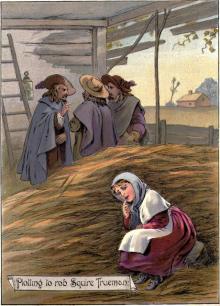 Goody Two-Shoes
Goody Two-Shoes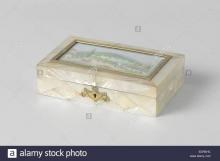 The Pearl Box
The Pearl Box And when you gone...
And when you gone... Stranger At The Other Corner
Stranger At The Other Corner My Young Days
My Young Days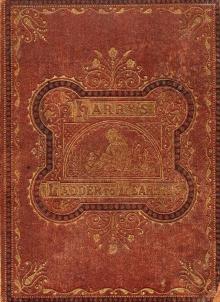 Harry's Ladder to Learning
Harry's Ladder to Learning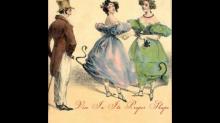 Vice in its Proper Shape
Vice in its Proper Shape_preview.jpg) Promise (the curse)
Promise (the curse)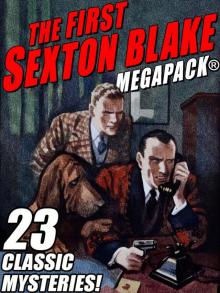 The First Sexton Blake
The First Sexton Blake Golden Moments
Golden Moments Hildebrand; or, The Days of Queen Elizabeth, An Historic Romance, Vol. 2 of 3
Hildebrand; or, The Days of Queen Elizabeth, An Historic Romance, Vol. 2 of 3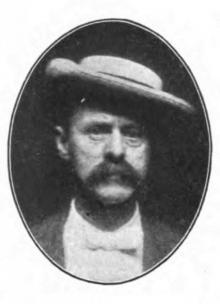 The Ice Queen
The Ice Queen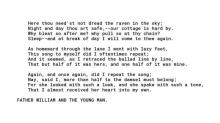 Phebe, the Blackberry Girl
Phebe, the Blackberry Girl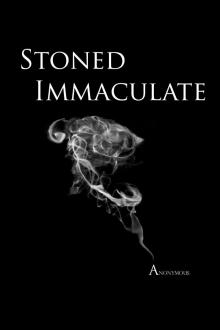 Stoned Immaculate
Stoned Immaculate Hildebrand; or, The Days of Queen Elizabeth, An Historic Romance, Vol. 3 of 3
Hildebrand; or, The Days of Queen Elizabeth, An Historic Romance, Vol. 3 of 3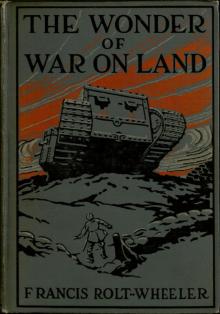 The Wonder of War on Land
The Wonder of War on Land Breaking Bailey
Breaking Bailey The Little Girl Who Was Taught by Experience
The Little Girl Who Was Taught by Experience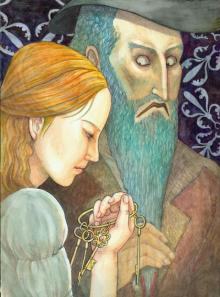 The Popular Story of Blue Beard
The Popular Story of Blue Beard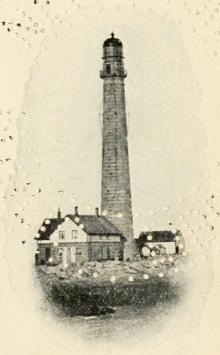 The Life Savers: A story of the United States life-saving service
The Life Savers: A story of the United States life-saving service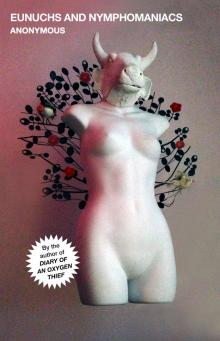 Eunuchs and Nymphomaniacs
Eunuchs and Nymphomaniacs Hildebrand; or, The Days of Queen Elizabeth, An Historic Romance, Vol. 1 of 3
Hildebrand; or, The Days of Queen Elizabeth, An Historic Romance, Vol. 1 of 3 Kitty's Picnic, and Other Stories
Kitty's Picnic, and Other Stories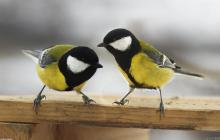 Two Yellow-Birds
Two Yellow-Birds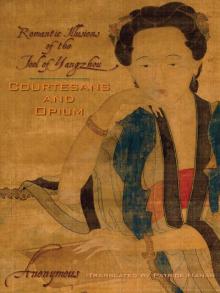 Courtesans and Opium
Courtesans and Opium The Emigrant's Lost Son; or, Life Alone in the Forest
The Emigrant's Lost Son; or, Life Alone in the Forest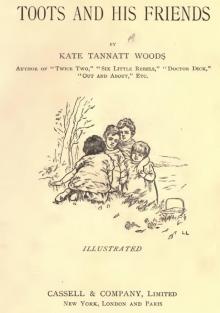 Toots and His Friends
Toots and His Friends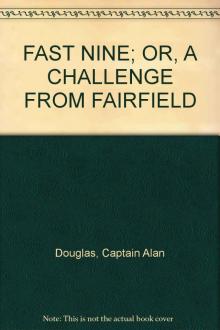 Fast Nine; or, A Challenge from Fairfield
Fast Nine; or, A Challenge from Fairfield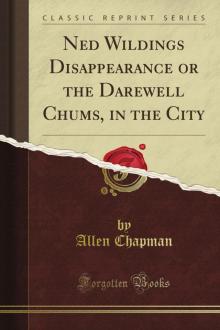 Ned Wilding's Disappearance; or, The Darewell Chums in the City
Ned Wilding's Disappearance; or, The Darewell Chums in the City A Picture-book of Merry Tales
A Picture-book of Merry Tales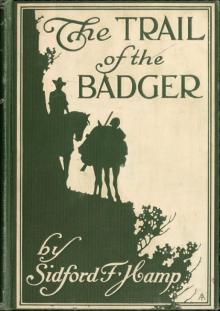 The Trail of The Badger: A Story of the Colorado Border Thirty Years Ago
The Trail of The Badger: A Story of the Colorado Border Thirty Years Ago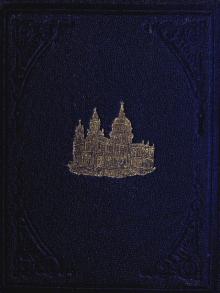 Peter Parley's Visit to London, During the Coronation of Queen Victoria
Peter Parley's Visit to London, During the Coronation of Queen Victoria The Rainbow, After the Thunder-Storm
The Rainbow, After the Thunder-Storm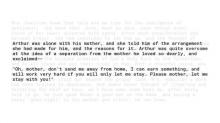 Arthur Hamilton, and His Dog
Arthur Hamilton, and His Dog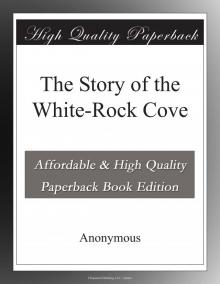 The Story of the White-Rock Cove
The Story of the White-Rock Cove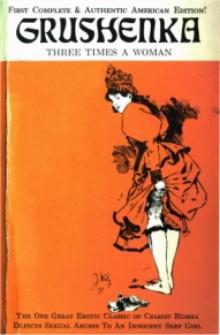 Grushenka. Three Times a Woman
Grushenka. Three Times a Woman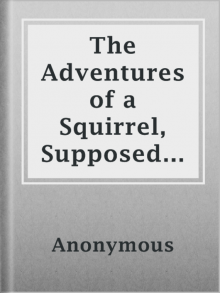 Adventures of a Squirrel, Supposed to be Related by Himself
Adventures of a Squirrel, Supposed to be Related by Himself Falling in Love...Again
Falling in Love...Again The Colossal Camera Calamity
The Colossal Camera Calamity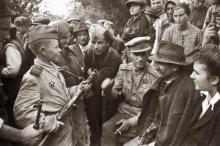 Child of the Regiment
Child of the Regiment Elimination Night
Elimination Night The Kingfisher Secret
The Kingfisher Secret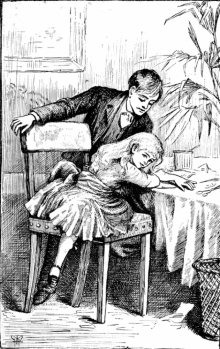 Left to Ourselves; or, John Headley's Promise.
Left to Ourselves; or, John Headley's Promise. The Island of Gold: A Sailor's Yarn
The Island of Gold: A Sailor's Yarn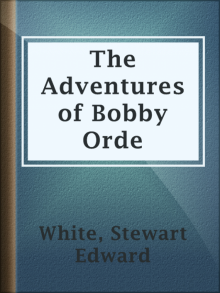 Adventures of Bobby Orde
Adventures of Bobby Orde Twain, Mark: Selected Obituaries
Twain, Mark: Selected Obituaries When Love Goes Bad
When Love Goes Bad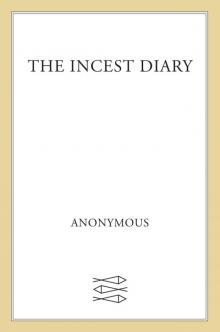 The Incest Diary
The Incest Diary Calling Maggie May
Calling Maggie May The Infidelity Diaries
The Infidelity Diaries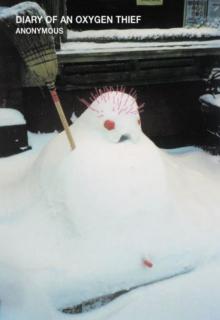 Diary of an Oxygen Thief (The Oxygen Thief Diaries)
Diary of an Oxygen Thief (The Oxygen Thief Diaries) ARABELLA
ARABELLA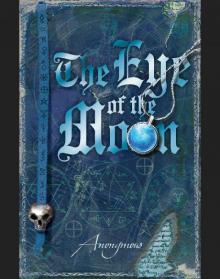 The Eye of the Moon
The Eye of the Moon Dara
Dara THE ALTAR OF VENUS: The Making of a Victorian Rake
THE ALTAR OF VENUS: The Making of a Victorian Rake The Book of Death
The Book of Death The Book of David
The Book of David The Devil's Graveyard
The Devil's Graveyard The Book With No Name
The Book With No Name I Am A Lesbian
I Am A Lesbian Njal's Saga
Njal's Saga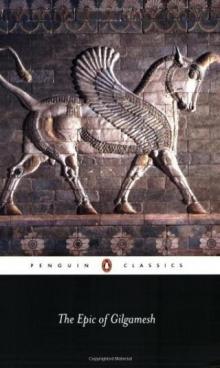 The Epic of Gilgamesh
The Epic of Gilgamesh Darling
Darling Tal, a conversation with an alien
Tal, a conversation with an alien Go Ask Alice
Go Ask Alice Aphrodizzia
Aphrodizzia The Campus Trilogy
The Campus Trilogy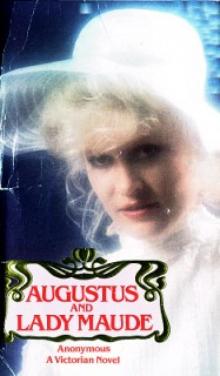 Augustus and Lady Maude
Augustus and Lady Maude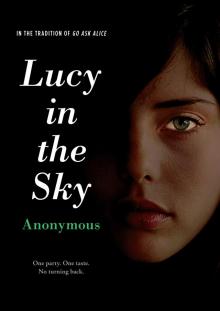 Lucy in the Sky
Lucy in the Sky Sight Unseen
Sight Unseen Pleasures and Follies
Pleasures and Follies The Red Mohawk
The Red Mohawk A Fucked Up Life in Books
A Fucked Up Life in Books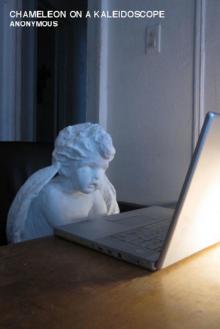 Chameleon On a Kaleidoscope (The Oxygen Thief Diaries)
Chameleon On a Kaleidoscope (The Oxygen Thief Diaries) Astrid Cane
Astrid Cane BEATRICE
BEATRICE The Song of the Cid
The Song of the Cid